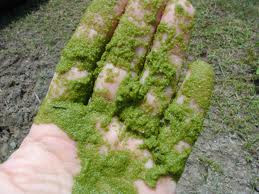 Why do some life scientists insist on trying to reduce what we are as human beings to the lowest common biological denominator? Here I was minding my own business, reading the New York Times Book Review to raise my blood pressure, and there it is again: Humans are just pond slime. From the book review of Horseshoe Crabs and Velvet Worms:
Why do some life scientists insist on trying to reduce what we are as human beings to the lowest common biological denominator? Here I was minding my own business, reading the New York Times Book Review to raise my blood pressure, and there it is again: Humans are just pond slime. From the book review of Horseshoe Crabs and Velvet Worms:
Beside the steaming geysers of Yellowstone, Fortey gets down on his hands and knees, undeterred by staring tourists, to observe the steamy environment of heat-loving bacteria. Gazing at the green microbial mats the bacteria form, he has a sobering thought: “Yellowstone National Park may be the best place there is to reflect on the fact that we are all pond slime. Every cell in our body acknowledges a deep history, a time when organelles floated free in a world we would have found insupportable.”
Yes, sobering. So sobering.
Wait! I thought we were just ”star stuff.” That’s what the late astronomer Carl Sagan told us. But this kind of reductionism that defines us as our molecular makeup or genetic lineage, so often seen in writing about evolutionary history—are we supposed to be shocked?—is not only ridiculous, it is unscientific. If we evolved from bacteria, we certainly are not bacteria now.
But we are the bad guys:
At the end of his joyful travels, full of heartfelt appreciation for so many humble, enduring creatures, Fortey strikes a somber note, giving precious little hope for the next four billion years. He fears that his fellow human beings, lacking humility, will cause the third great extinction. And then what will survive? Bacteria: “They will be there to rot down the last bodies of the last humans, and then the wheel of life will have turned full circle.”
Wait. I thought the cockroaches were going to be the new lords of the earth after we destroy it. These anti humanists have to get their stories straight.
You have a decision to make: double or nothing.
For this week only, a generous supporter has offered to fully match all new and increased donations to First Things up to $60,000.
In other words, your gift of $50 unlocks $100 for First Things, your gift of $100 unlocks $200, and so on, up to a total of $120,000. But if you don’t give, nothing.
So what will it be, dear reader: double, or nothing?
Make your year-end gift go twice as far for First Things by giving now.


